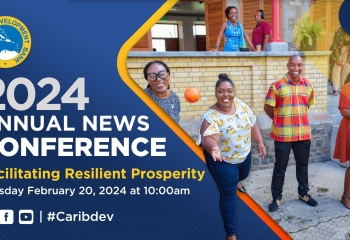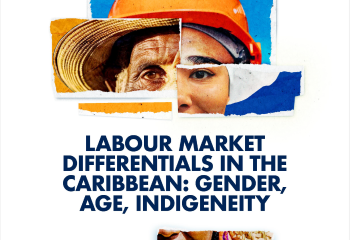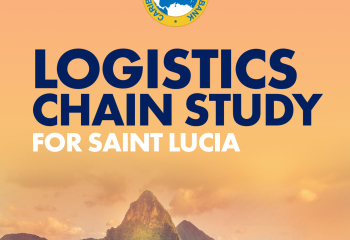Address: Special Meeting of Permanent Council of The Organization of American States
Distinguished guests, ladies and gentlemen, all protocols observed.
If the planet’s temperature rises above 1.5C, the impact will be catastrophic — from rising sea levels, to changes to marine and terrestrial ecosystems, to new diseases, to changes in water and soil chemistry, with known and unknown effects. Let us be clear: these are permanent shocks to our lives, and two things will matter for sustainability — how vulnerable and how resilient our economies are to shocks. That is the case for the urgency of now — we need mitigation to avoid, adaptation to a new reality, loss and damage to address ongoing permanent impacts, and disaster risk management for precautionary actions.
The magnitude of the problem dictates that we seize this moment to leverage our solidarity and collective strength — without collective effort and responsibility, the whole planet suffers! For us in the Caribbean and parts of Latin America, we are already suffering — we know already what 1.1C means and we dread 1.5C. Not only are we among the most vulnerable, but we are also among the least resilient. Yet we have no choice but to stay alive and thrive.
Surviving and thriving requires advocacy and action to deliver a holistic solution for a system-wide problem — namely, deliver on resilient prosperity underpinned by justice. To clarify, we cannot have climate justice without social justice, and no social justice without trade justice. So, climate change, poverty alleviation, and just trade are linked. I suggest we support:
- Genuine global architecture reform — integrate debt sustainability with investment for growth and resilience building for sustainability. That means redefining our metrics and policies away from a solely Gross-national-income basis to a measure of sustainability — our capacity to be resilient to shocks — and shifting the focus of policy design and implementation from an inner core of international financial institutions to a wider more inclusive set that includes regional development banks.
- Make a just energy transition real — mandate the USD100 billion pledge effective in 2025, at least double flows for adaptation, operationalise and capitalise the Loss and Damage Fund, and mainstream resilience and build capacity in disaster risk management across most vulnerable states. Of note, the 2023 Adaptation Gap Report estimates developing countries need $215 billion to $387 billion annually, 10 to 18 times higher than the current flow of public financing, and that is 50 per cent higher than previously estimated. In addition, let us support indigenous solutions that will accelerate the energy transition from natural sources to power our lives. The Caribbean Development Bank (CDB) has proposed use of a Minimum Regulatory Function to provide a policy framework for investors to facilitate the transition to renewable energy.
- Increase access to adequate and affordable finance — re-channel yet-to-be-used SDRs to regional development banks for resilience building and use innovative finance instruments like guarantees and asset protection schemes to reduce risk and crowd in private sector funding for optimal national and global impact. Also, explore increasing fiscal space for sovereigns through the reprofiling of existing debt and assessing new debt for resilience building with terms separable from those of existing debt.
- Build capacity to use financial resources more effectively for development —CDB, the African Development Bank, the Inter American Bank, and the Asian Development Bank, with strong support from Alliance of Small Island States, have bid to host the Santiago Network Secretariat. This partnership will leverage collective knowledge, networks, and resources to provide direct on-the-ground support to the world’s most vulnerable regions. It is vital for the OAS to provide full political support to this bid, right here on the front line of climate change, and ensure a successful bid decision is an outcome of COP28!
- Invest in effective partnerships — partnerships between public and private sectors for the national good, partnerships in knowledge creation and dissemination and technology for greater productivity, and partnerships for mobilising financing — I suggest a hemispheric financing coalition to mobilise resources and deploy for greater effectiveness across our countries according to need, based on policies to reduce vulnerability and increase resilience.
Ladies and gentlemen, because of the fierceness of climate change impacts, we must prepare for a situation where even our best efforts to adapt to climate change are unsuccessful but the decisions we make from this minute until 2030 will shape our lives for decades to come.
So let us stand united, work tirelessly, and usher in an era where our countries become a symbol of sustainability and prosperity for all. The outcomes of COP are entirely up to us and within our grasp. Go bold and with deliberate haste!
I thank you.




